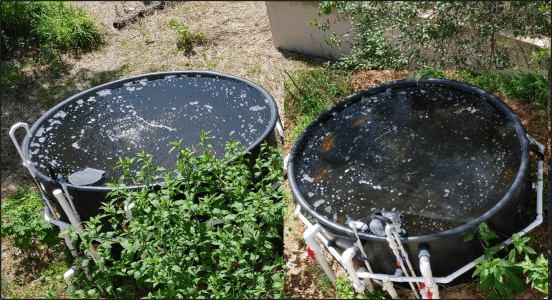Electricity is the single greatest operating expense for aquaponic facilities such as fish farms, hydroponic vegetable farms, and aquatic animal rescues/shelters. The energy demands of water circulation, filtration, and UV/Ozone water purification systems account for up to 95% of the operating budget for many facilities. However, if well-established solar and wind technologies were incorporated into the existing system to create a hybrid system, energy costs could be reduced by 50% or more. This means that the cost of production – and perhaps the wholesale price – could be stabilized or even reduced.
In general, aquaculture filtrations systems are designed to maintain a constant flow rate to maintain oxygenation and good water quality. This is based on how many gallons per hour require filtration to maintain healthy fish and plant stock. However, the real-world environments for these fish and plants do not provide a constant flow rate – the rate varies over the course of the day.
So what would it take to achieve a more natural and energy-efficient environment for aquaculture, yet still meet necessary filtration needs across a 24-hour day? One possible approach is to adapt to a hybrid filtration system, as outlined below:
- Maximize renewable energy to provide the bulk of needed filtration, using solar and/or wind-powered off-grid pumps
- Limit the use of grid-powered, continuous operation pumps to “off-hours” filtration
- The High Alert Institute partners with renewable energy and energy monitoring/management companies to demonstrate energy-saving processes for adoption by the aquaponic industry. We also assist innovators with the design, development, and evaluation of green and renewable energy technologies.
Our efforts in shelter and rescue are focused on environmental stewardship. Reducing the carbon footprint of our aquaponic facilities is an integral part of that effort, both environmentally and economically. And because renewable energy sources reduce our need for generator use during a disaster, using a hybrid system provides our facility with an extra layer of disaster readiness and operational continuity.










